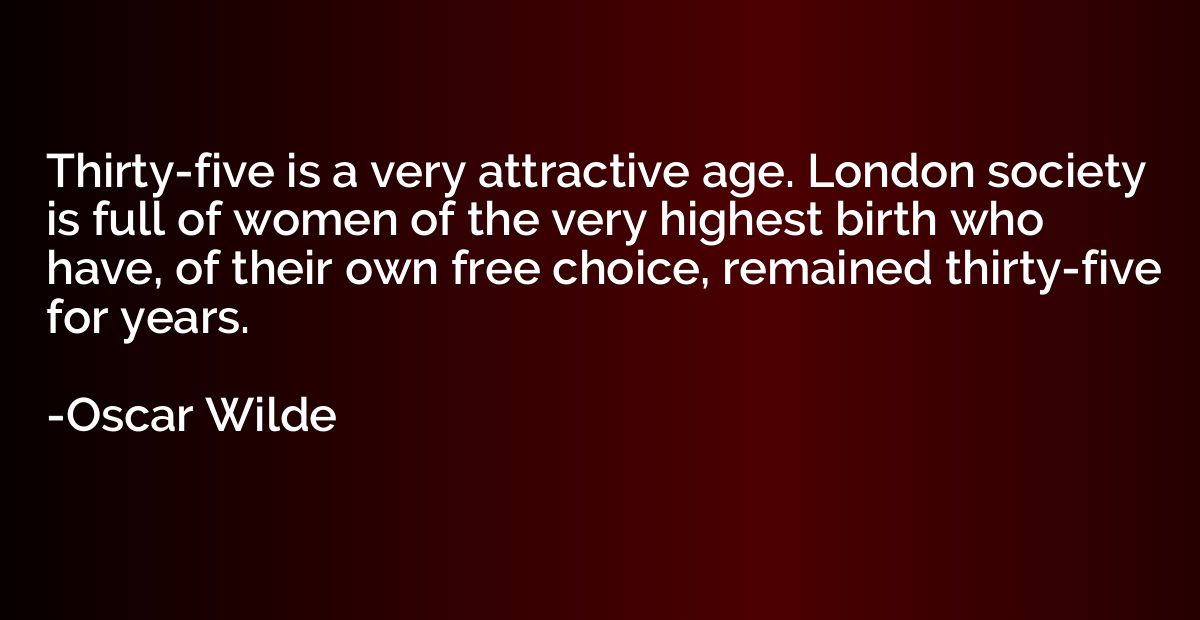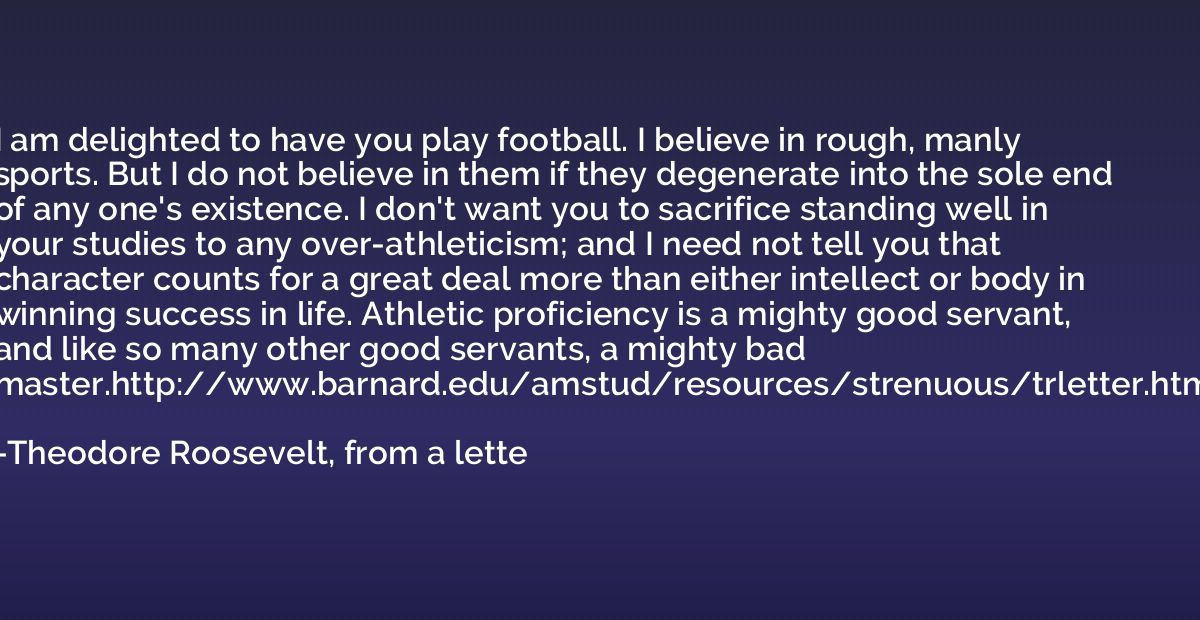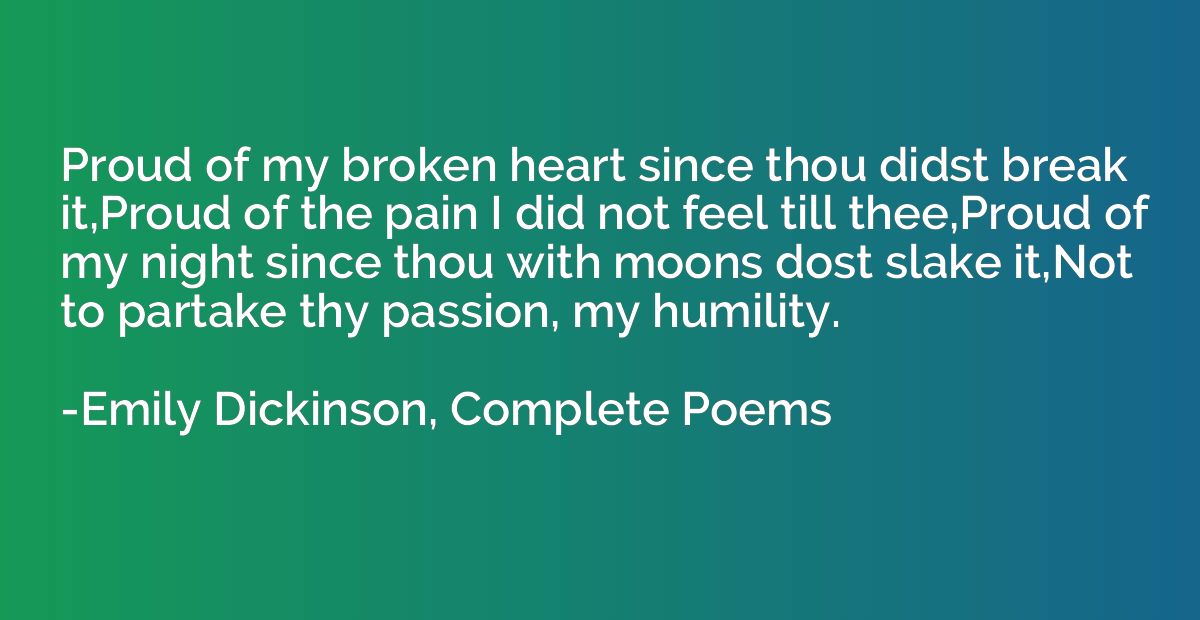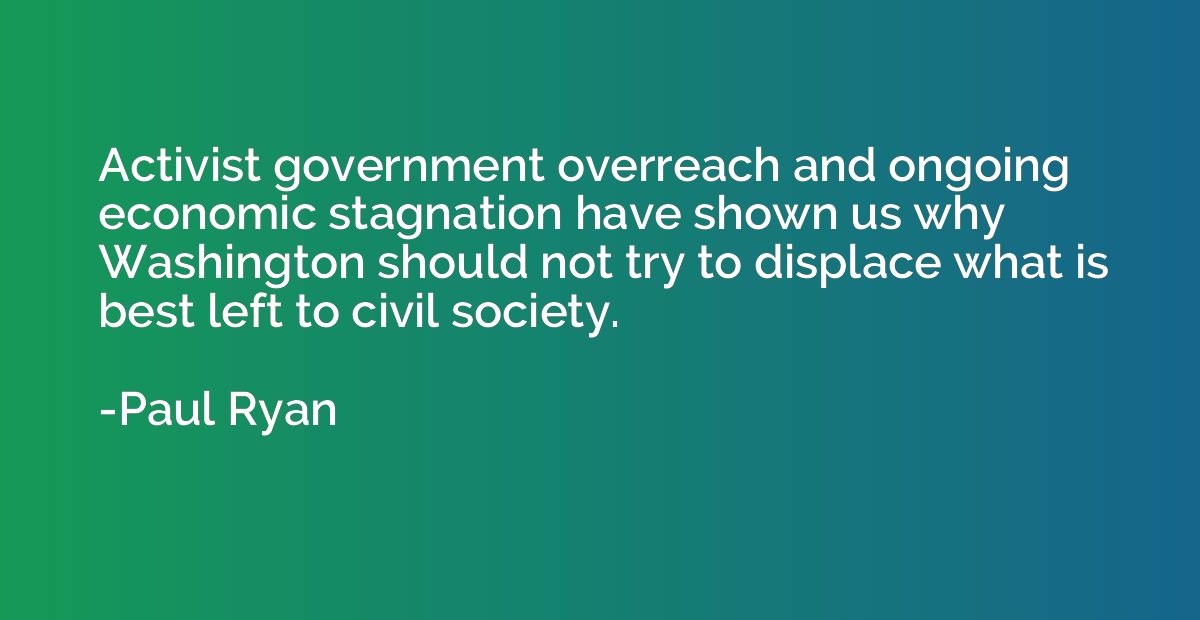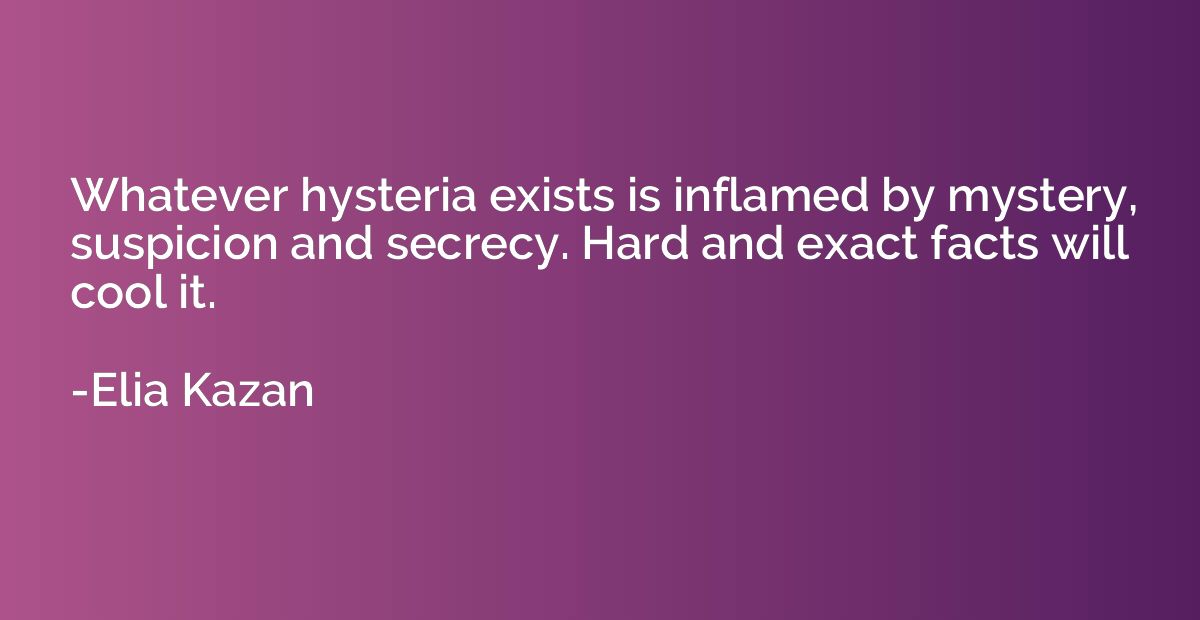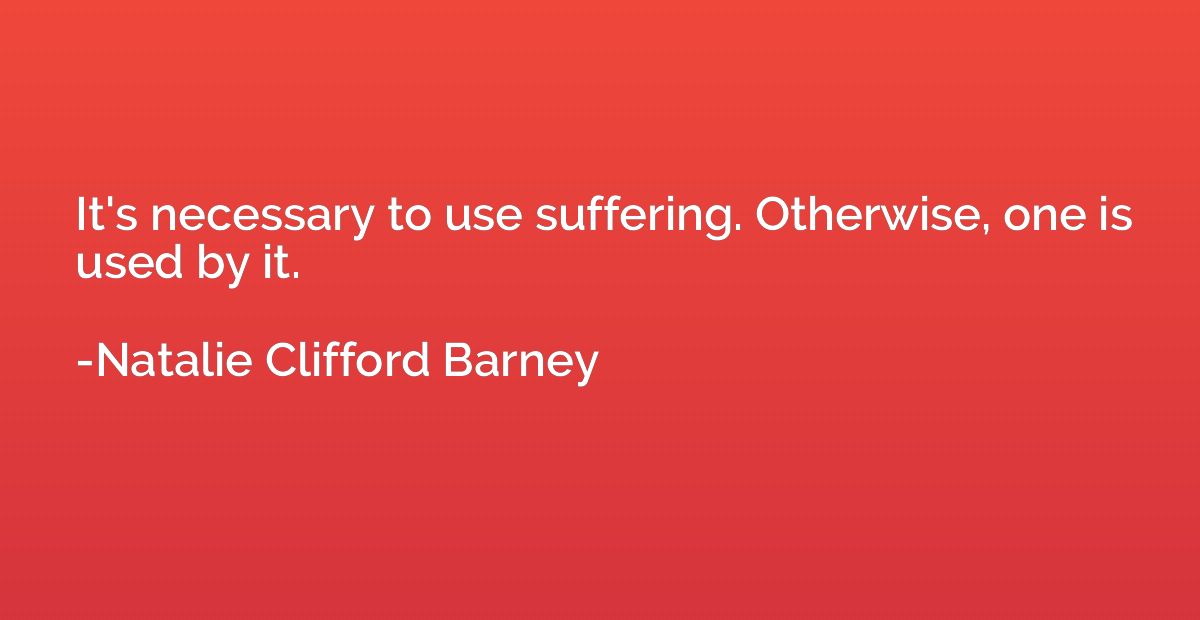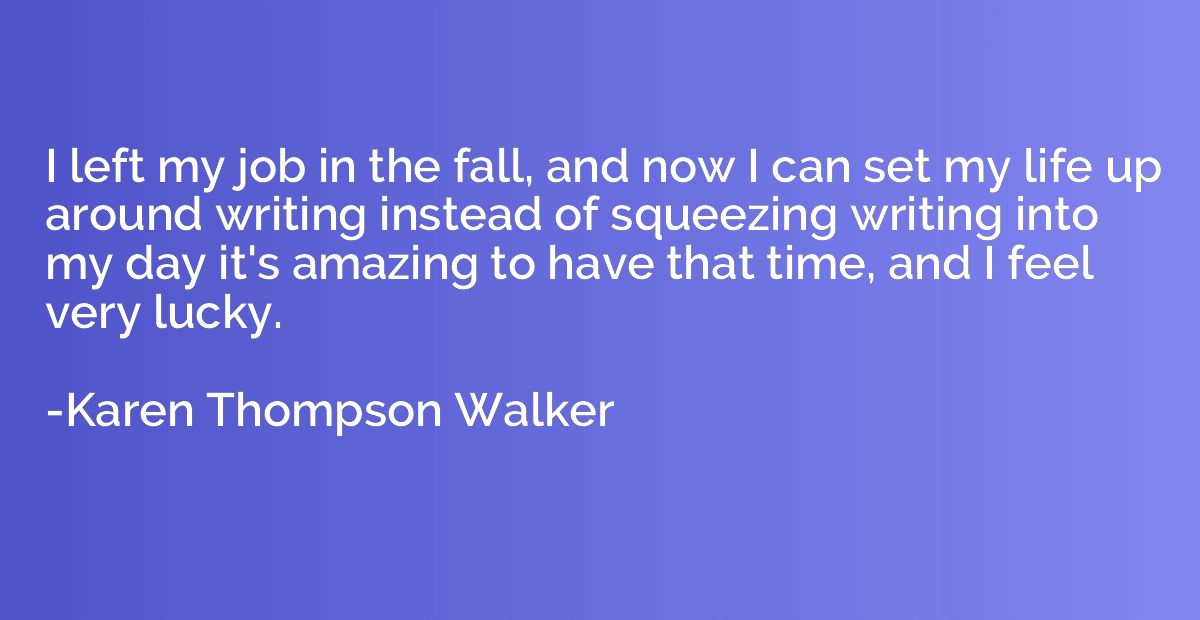Quote by William Shakespeare
What infinite heart's-easeMust kings neglect, that private men enjoy!And what have kings, that privates have not too,Save ceremony, save general ceremony?And what art thou, thou idle ceremony?What kind of god art thou, that suffer'st moreOf mortal griefs than do thy worshippers?What are thy rents? what are thy comings in?O ceremony, show me but thy worth!What is thy soul of adoration?Art thou aught else but place, degree and form,Creating awe and fear in other men?Wherein thou art less happy being fear'dThan they in fearing.What drink'st thou oft, instead of homage sweet,But poison'd flattery? O, be sick, great greatness,And bid thy ceremony give thee cure!Think'st thou the fiery fever will go outWith titles blown from adulation?Will it give place to flexure and low bending?Canst thou, when thou command'st the beggar's knee,Command the health of it? No, thou proud dream,That play'st so subtly with a king's repose;I am a king that find thee, and I know'Tis not the balm, the sceptre and the ball,The sword, the mace, the crown imperial,The intertissued robe of gold and pearl,The farced title running 'fore the king,The throne he sits on, nor the tide of pompThat beats upon the high shore of this world,No, not all these, thrice-gorgeous ceremony,Not all these, laid in bed majestical,Can sleep so soundly as the wretched slave,Who with a body fill'd and vacant mindGets him to rest, cramm'd with distressful bread;Never sees horrid night, the child of hell,But, like a lackey, from the rise to setSweats in the eye of Phoebus and all nightSleeps in Elysium; next day after dawn,Doth rise and help Hyperion to his horse,And follows so the ever-running year,With profitable labour, to his grave:And, but for ceremony, such a wretch,Winding up days with toil and nights with sleep,Had the fore-hand and vantage of a king.The slave, a member of the country's peace,Enjoys it; but in gross brain little wotsWhat watch the king keeps to maintain the peace,Whose hours the peasant best advantages.
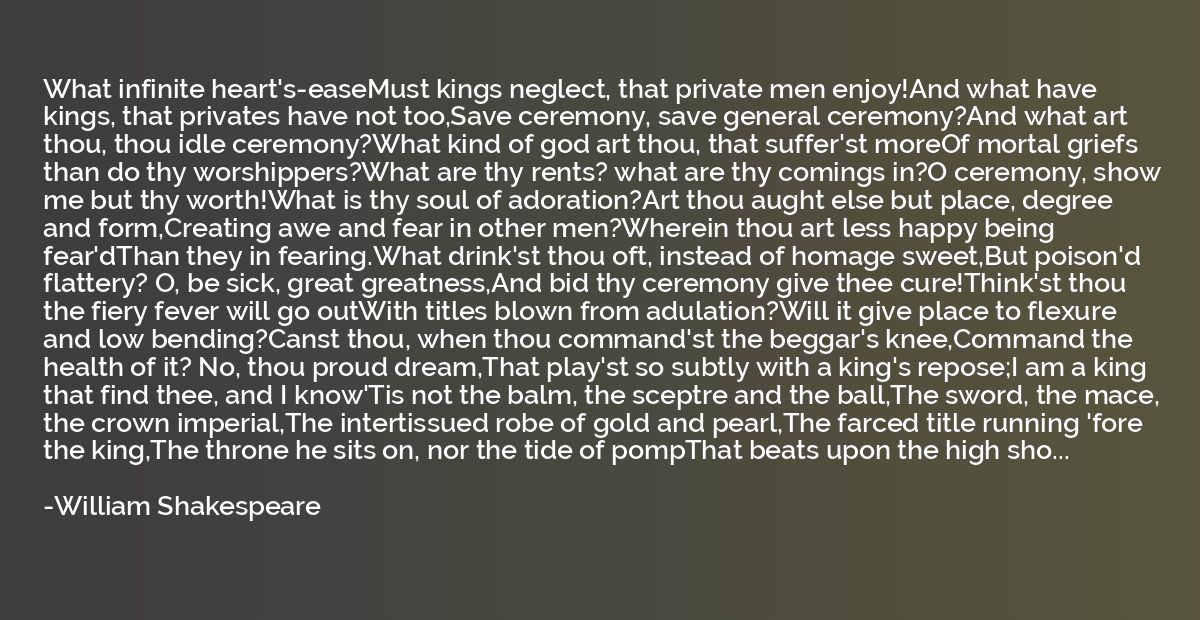
Summary
This quote, spoken by King Henry V in Shakespeare's play, questions the purpose and value of ceremony and the role of kingship. He suggests that private individuals enjoy a sense of ease and freedom that kings, burdened by ceremonial obligations, do not. The king wonders why he must endure the weight of mortal griefs and flattery while his subjects live more content lives. He reflects on the superficiality of ceremony and argues that a wretched slave, unburdened by such formalities, actually has the advantage over a king in terms of rest and peace. The quote highlights the sacrifices and burdens of kingship and questions the true essence and worth of power and its trappings.




